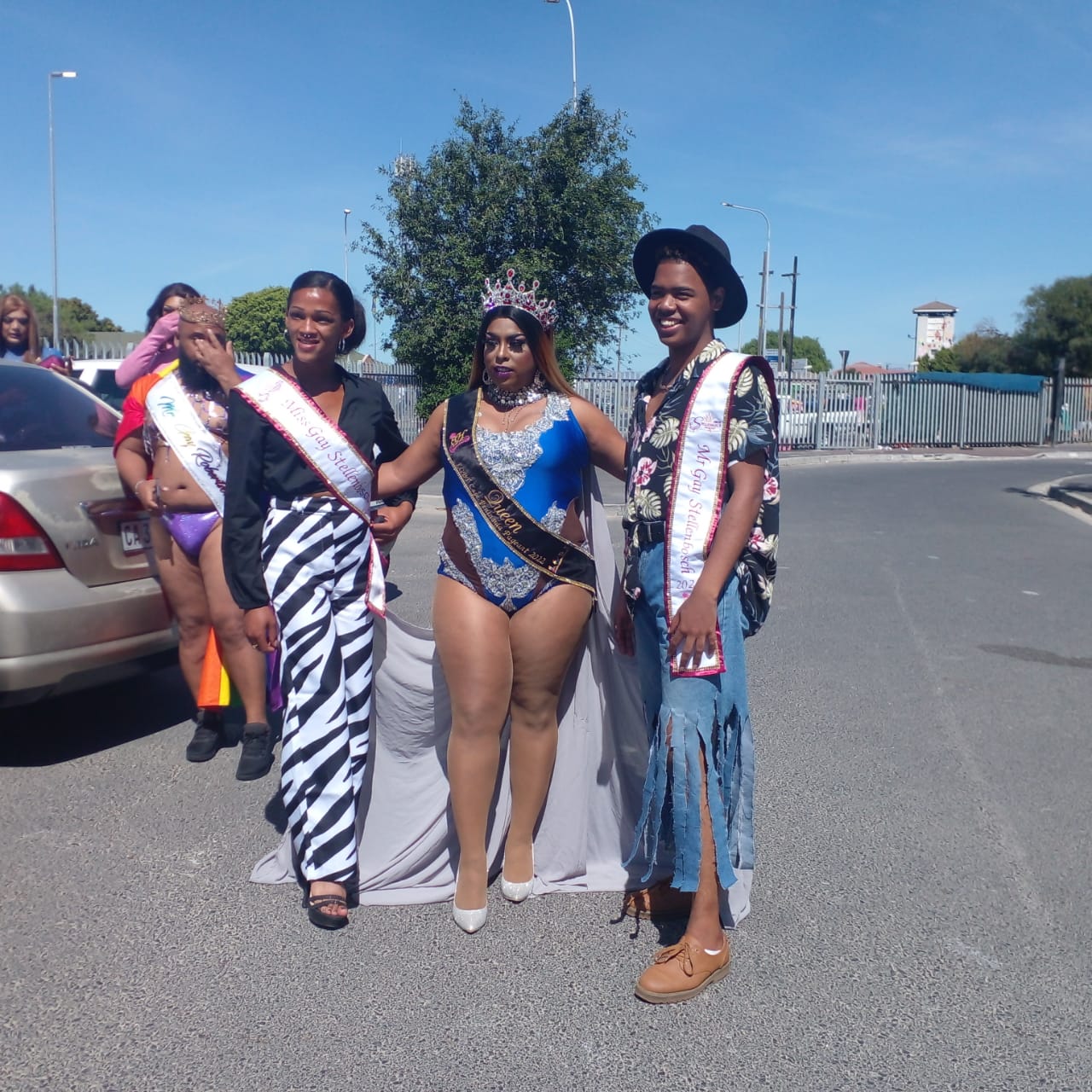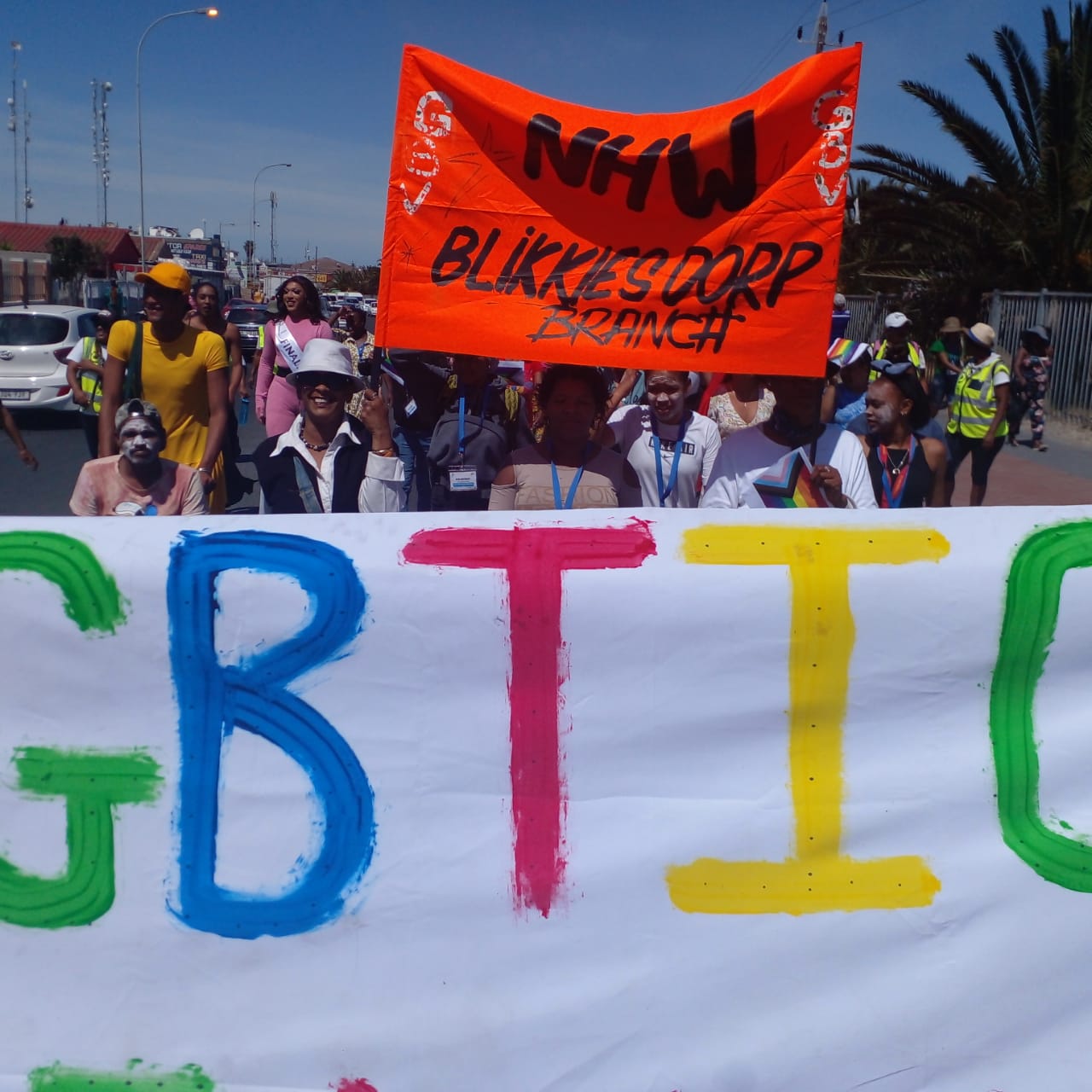
The LGBTQI+ community took to the streets in Delft on Friday 28 October raising awareness about their plight.
The organiser of the event Jackye Majawie who is the founder of Majawie Safe Space that caters for the needs of the LGBTQI+ community around Delft said the LGBTQI+ community is not protected enough. She said when people are talking about gender-based violence, only women and children are protected, and nobody mentions the protection of trans people.

“This event is about gender-based violence but GBV when it comes to the LGBTQI+ community because we are not always included when it comes to GBV. What we are doing is to raise awareness, we want to educate the community and even professionals because some of them do not know about GBV when it comes to the LGBTQI+ community. At a cop shop you get to be asked how you can be raped when you are a man and not a woman,” said Majawie.
Majawie said from this year going forward they will be taking to the streets on the 28th of October every year for a “Pride March”.
“We are not fighting anyone, but the March is to say ‘we also have rights’ and we face GBV daily. When people talk about GBV it is always about women and children and we are not included, we want our voices to be heard,” she said.
Ward 20 councillor Dineo Masiu was marching with the group. She told Ezitshisayo that the LGBTQI community has not been fully accepted by the community.
“We are walking on the streets to show people that the LGBTQI community must be loved, and violence is not the way to go about it. What we have found out in Delft is that people have not accepted them. They are not accepted, even when they go to the police stations, even when they go to the hospital, churches and even schools, they are not well accepted. We are here to say they are to stay, and they must be accepted, they are part of South African citizens and part of our people,” she said.